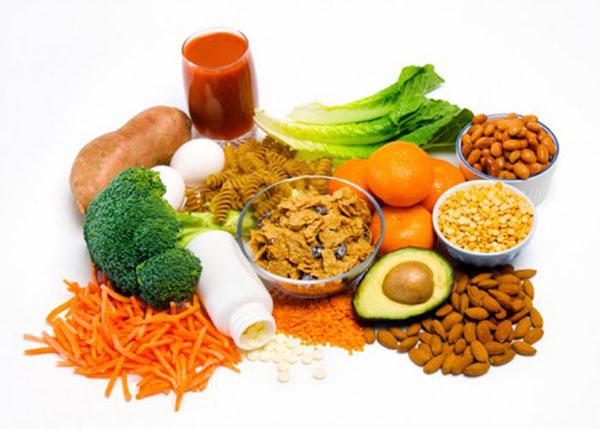You are here
Food supplement seen as tool for stemming risk for autism
By Austin American-Statesman (TNS) - Feb 25,2016 - Last updated at Feb 25,2016
AUSTIN, Texas — Autism researchers at Texas A&M University say they have discovered that a common food supplement could help offset a genetic mutation linked to the complex disorder.
Carnitine, which is available as an over-the-counter nutritional supplement and is found in red meats and whole milk, could play a key role in preventing some forms of autism from developing during the early days of pregnancy. There’s not a consensus on whether pregnant women should supplement their carnitine intake, but the A&M researchers see it as a step with virtually no downside if done under medical supervision, comparing it to the widely accepted recommendation that pregnant women consume folic acid, which is added to many foods because it helps prevent defects in a baby’s brain and spinal cord.
“It might help effectively address what seems to be a common factor in autism risk,” said Vytas Bankaitis, one of the authors of the study, which was published in the journal Cell Reports.
Paul Wang, the senior vice president for medical research at AutismSpeaks, said he could not endorse adding significant amounts of carnitine to people’s diets without clinical trials, but nonetheless said the science behind the idea is sound.
“I think this is an important step behind what’s happening with certain types of autism,” said Wang, who reviewed the A&M findings. “It’s solid early research.”
Previous studies found that a particular gene, TMLHE, is linked to autism. Lead researcher Zhigang Xie and Bankaitis appear to have determined how that connection works by tracking and analysing certain kinds of stem cells in developing brains. The lab work was done on mice, which are genetically similar to people.
In some mice, the TMLHE gene is mutated. Because of this, the body produces insufficient amounts of carnitine. Carnitine is important because it helps transport fatty acids into the correct compartment in a cell so they can be broken down. Lack of carnitine appears to result in a foetus’ neural stem cells not getting fatty acid to the correct places, increasing autism risk.
For a male foetus, the mutation erases the ability to make carnitine entirely — a finding consistent with the far higher prevalence of autism among boys, Bankaitis said.
Autism might ultimately be linked to as many as 1,000 genes, and this research addresses only one of those genes, Bankaitis said. But mutations in this particular gene are surprisingly common, he said, and “if you can reduce incidence by even 1 per cent by just a nutritional method, that’s a lot of money and effort society has saved”.
Autism is a general term for “a group of complex disorders of brain development… characterised, in varying degrees, by difficulties in social interaction, verbal and nonverbal communication and repetitive behaviours”, according to AutismSpeaks, a national advocacy group that sponsors research and conducts awareness campaigns. One in 68 American children are on the autism spectrum, a tenfold increase in prevalence in 40 years, according to the organisation, which estimates the social cost in the United States is $236 billion a year.
The National Institutes of Health and the Welch Foundation, a private funder of chemical research, paid for the work of Xie and Bankaitis.
The upshot, to them: The body does not necessarily have to produce its own carnitine. It’s found in many normal diets. The ideal amounts for someone to ingest will have to be worked out in separate clinical trials, Bankaitis said, but he added that there is little reason for someone working with a doctor to wait. He sees carnitine supplements in the same light as folic acid, which poses so little risk and carries such an upside that the Food and Drug Administration allowed it to be added to many foods without extensive clinical trials.
For people considering starting a family who are on, say, a vegan diet that has little carnitine, “I would ask my doctor if I could take a corrective supplement,” Bankaitis said. “It’s just such a small, non-invasive, inexpensive step.”
Related Articles
NEW YORK — For decades, pregnant women and women who may become pregnant have been advised to take folic acid to help prevent certain birth
Clinical Dietician Some of our poor food choices have the ability to reduce testosterone, diminish sex drive, reduce sensitivity, alter
For older people, the brain-protecting benefits of eating fish outweigh any potential harms from mercury, according to a small US brai

















